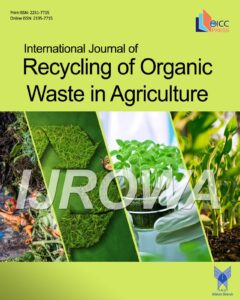
Purpose To characterize substrates made of millicomposts produced from a mixture of cow paw leaves (Bauhinia sp.), grass clippings (Paspalum notatum), banana leaves (Musa sp.) and cardboard submitted to processing through the activity of millipedes Trigoniulus corallinus for 90, 125 or 180 days. The efficiency of producing lettuce seedlings using these substrates was compared to […]
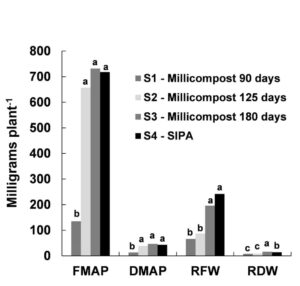
Purpose Recycling of food waste fraction of municipal solid waste into compost for use in agriculture is seen as an effective environmentally–friendly option. In developing countries, however, there are few commercial composting facilities producing composts whose use in agriculture is low, mainly due to their low nutrient content compared to chemical fertilizers. Method This study […]
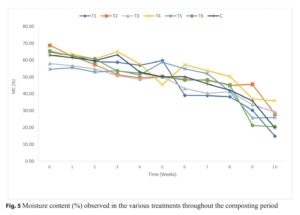
Purpose Fish scale contains two important constituents, the hydroxyapatite and collagen. The purpose of this paper was to use the dried form of the effluent, called Fish Scale Effluent (FSE), generated through simultaneous recovery of these constituents, as a fertilizer. Method The FSE was obtained from Labio rohita (Rohu) scale by treatment in sequence with […]
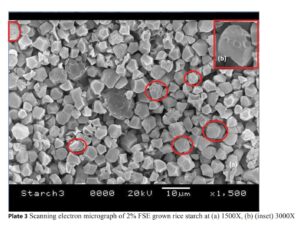
Purpose This study aimed to evaluate the effect of different additives on chemical composition, fermentation characteristics, and gas production parameters of tomato pomace and pumpkin waste silages. Method Treatments were: tomato pomace silage, pumpkin waste silage, tomato pomace and pumpkin waste silage mix (50:50), tomato pomace and pumpkin waste silage mix treated with the fibrinolytic […]
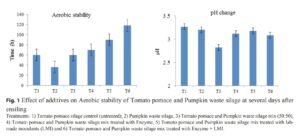
Purpose This study aims to ascertain the physiochemical characteristics of the compost made from recycled cotton spinning waste (CSW) for Indian Spinach cultivation in Bangladesh. Method The physiochemical characteristics of the compost made of fresh cotton spinning waste (CSW), cotton spinning waste ash (CSWA), rice husk (RH), rice husk ash (RHA) with varying ratios following open […]
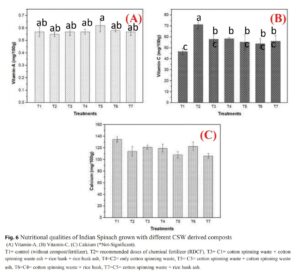
Purpose In this study, the role of compost application in alleviating salt stress effects on date palm seedlings growth and development was investigated. Method The experiment was set in a randomized design, with or without green waste-based compost, and under two salinity levels (0 and 240 mM NaCl). Growth, mineral uptake, photosynthetic pigments content, oxidative […]
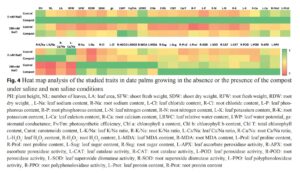
Purpose The role of cocoa pod husk waste in soil cadmium contamination has been largely overlooked. Hence, this study aims to provide a strategy for the management of cocoa pod husk waste when representing a pollution menace for cocoa plantations. Method Cocoa pod husks waste was subjected to composting and pyrolysis for decreasing the heavy […]
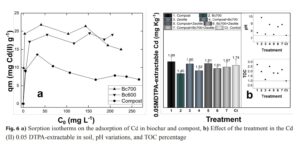
Purpose The investigation of the different plant waste parts for ecofriendly management of Fusarium sp. was carried out. Method The disease associated fungus was isolated from the diseased specimen and purified. The twelve different aqueous plant extracts were prepared and evaluated against test pathogen in laboratory, pots and in filed conditions. Results Among the tested […]
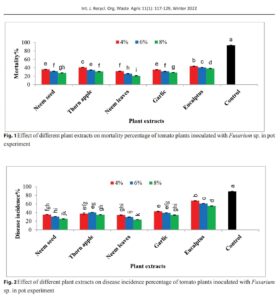
Purpose Organic solid wastes contain tremendous amounts of nutrients and beneficial microbes that cause environmental problems, such as pollution and shortage of dumping sites. Vermicomposting, considered as one of the most suitable stabilization and mass reduction methods, has been recognized for biowastes. This study aimed to evaluate the microbial diversity and analyze the ability of […]
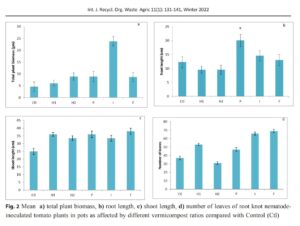
Purpose The objective of the study was to evaluate the application effects of different doses of onion residue mixed with bovine manure compost as an organic fertilizer on a hybrid Tetsukabuto squash crop cultivated in a field. Method The experimental design required randomly dividing blocks with three replicates. The experiments were designed with different dose […]